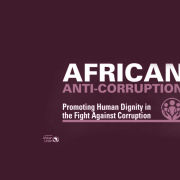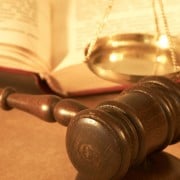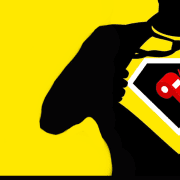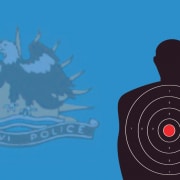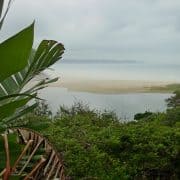|
Getting your Trinity Audio player ready...
|
Image: Flickr/crustmania
By Kwazi Dlamini
Newly established French-based civil society organisation Climate Whistleblowers seeks to bring to light the plight of whistle-blowers exposing environmental transgressions against governments and big companies.
Launched on 5 June 2023 – World Environment Day – the organisation also aims to throw its weight behind protecting those who speak out against perpetrators who worsen the climate crisis, ensuring that their exposures make a difference.
“Whistle-blowers can be crucial for the climate movement,” said the organisation in a statement. “They bring precise and substantial evidence and poignant testimonies on attacks on the environment. They can not only deliver impact by themselves but also spark public debate, fuel legal cases, and inspire others to act.”
Many such whistle-blowers have the potential to become climate watchdogs, added the organisation, “from a banker denouncing a fossil financing project to a government scientist who is being silenced, from an employee denouncing greenwashing practices to an engineer revealing mass deforestation”.
An organisation of this nature adds a needed boost in the civil society space, particularly the protection of whistle-blowers.
“Whistle-blower protection can only succeed when civil society remains actively engaged and holds authorities accountable for their actions,” said the organisation’s chairperson Anna Myers. “Our mission is to provide unwavering support and protection to climate whistle-blowers, who bravely speak up on behalf of all of us and the well-being of the planet.”
Climate Whistleblowers’ specific actions regarding whistle-blower protection include:
- helping individuals to safely blow the whistle by providing secure communication.
- helping climate whistle-blowers to assess the risks they would take and how to mitigate them. Also, investigating the information they are willing to disclose and ensuring their whistle-blowing is impactful.
- Directing the information and documents to investigative journalists at a trusted publication. The organisation has partnerships with media outlets that will produce impactful articles based on the information and protect the whistle-blower’s identity.
- Formation of a network of lawyers who can help safely report wrongdoings regarding climate change, strategically litigate, and protect whistle-blowers from retaliation. The organisation defends them against legal actions even if they do not have financial resources.
Governments must do more
The protection of whistle-blowers has become a hot topic in South Africa, especially after the death of Babita Deokaran. Organisations like Corruption Watch, the Platform to Protect Whistle-blowers in Africa, and others have been vocal about governments doing more to protect those who speak out.
However, these conversations often only look at whistle-blowers on a broader scale – Climate Whistleblowers specifically focuses on those in the fight against climate change.
Such an organisation could also help a country like South Africa, which has experienced growing levels of violence around environmental issues in the land mining sector, for instance. Communities in the Eastern Cape, KwaZulu-Natal, and Northern Cape have for years been fending off mining companies who want to exploit their land and in all probability cause huge environmental problems.
Mining industry a big culprit
Corruption Watch attorney Nkululeko Conco, who works with mining communities across the country, said that the formation of strategic partnerships with organisations like Climate Whistle-blowers and others based in mining-affected communities will help amplify the voices of whistle-blowers in this sector.
“The importance of an organisation such as Climate Whistleblowers cannot be overstated. A great deal of our commercial activity, not to mention the extractives industry, has an impact on the environment and the climate,” he said.
“As we exploit natural resources for transition minerals, we are bound to witness a scramble for minerals coupled with lack of consultation and silencing of dissenting voices,” Conco added.
The Eastern Cape community of Xolobeni has been in and out of court, fighting against an Australian mining company looking to extend its mining activities along the province’s Wild Coast.
In the midst of its legal battles, the community has lost key community leaders who led the fight against the mining company. The murder in March 2016 of Sikhosiphi ‘Bazooka’ Radebe, who was shot in front of his teenage son at his home in Mbizana, Eastern Cape, shocked the country. The attack was allegedly committed by two men impersonating police officers. Seven years on, there is still no justice, and nobody has been brought to book.
In KwaZulu-Natal, environmental activist Fikile Ntshangase, who vociferously opposed an existing open coal mine in the area, was similarly gunned down in her home in the community of Somkhele, in October 2020.
The mining industry contributes about 7% of greenhouse gas emissions globally, and without proper regulation these numbers are likely to rise. Local communities experience land erosion, sinkholes, damage to property, and loss of biodiversity. Furthermore, rural communities usually rely on subsistence farming but chemicals from mining activities contaminate the land and water.
Corruption Watch works extensively in mining-affected communities to sensitise them about corruption in the mining sector and also to listen to their stories – but Climate Whistleblowers focuses on the other side of the coin, the environment. By allowing for more focused reporting and support on issues of climate justice, the organisation will build a greater awareness of the environment impacts caused by industry, as well as community mobilisation around climate justice for current and future generations.
“By offering whistleblowers robust protection, we … foster a culture of accountability and transparency, ensuring that vital information regarding the climate reaches the public and decision-makers,” said Henri Thulliez and Gabriel Bourdon-Fattal, Climate Whistleblowers’ co-founders.

